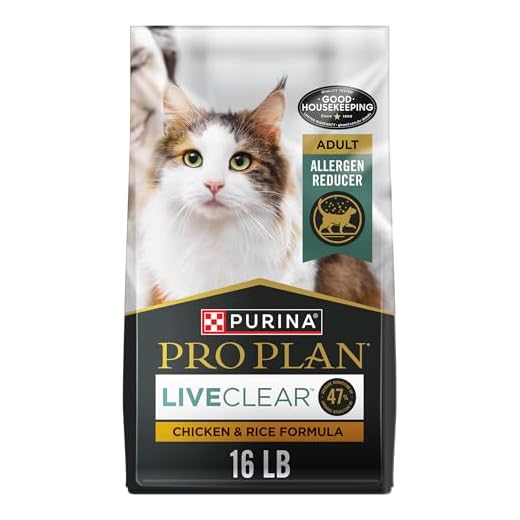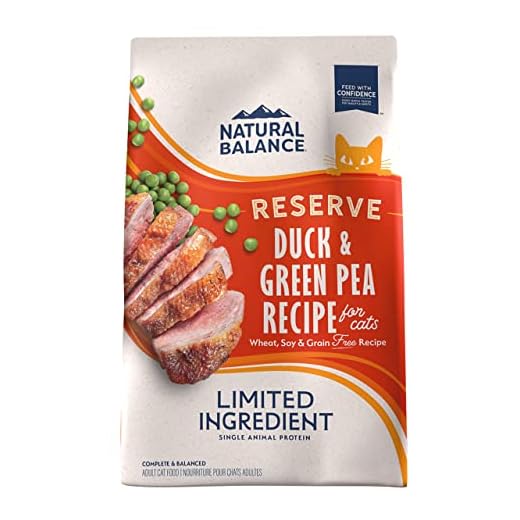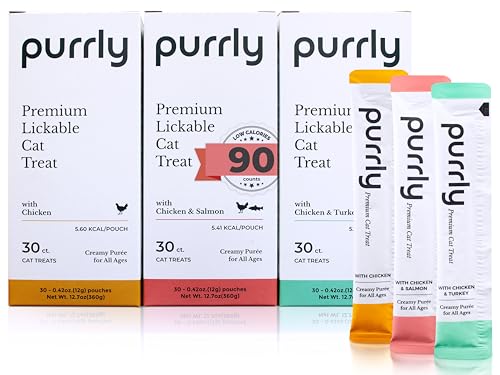



If you notice me occasionally regurgitating my meals, it might be due to a few specific reasons. One common cause is eating too quickly. I sometimes get so excited about my meal that I don’t take the time to chew properly, which can lead to a hasty return of my last snack.
Another factor could be the type of nourishment I consume. Certain ingredients might not sit well with my delicate tummy. If my meals contain too many fillers or are not suited for my digestive system, it could result in an upset.
Additionally, stress or changes in my environment can contribute to my gastrointestinal discomfort. When I feel anxious or unsettled, it may disrupt my digestion, causing me to bring up my previous meal.
If this happens frequently, it’s wise to consult with a veterinarian. They can provide guidance on dietary adjustments or check for any underlying health issues. Keeping my diet balanced and observing my eating habits can help maintain my well-being.
Common Causes of Vomiting in Cats
Identifying the root of regurgitation can lead to better health for us furry friends. Here are some frequent triggers:
- Dietary indiscretion: Consuming inappropriate items like plants, plastic, or spoiled cuisine can upset the stomach.
- Food allergies: Certain ingredients may provoke adverse reactions, often resulting in digestive distress.
- Hairballs: Accumulation of fur can lead to blockages that cause discomfort and lead to expulsion.
- Rapid eating: Gobbling down meals too quickly can introduce air and make it harder for the stomach to process.
- Gastrointestinal issues: Conditions such as inflammation or infections can irritate the digestive tract.
- Parasites: Unwelcome guests in the digestive system can lead to various symptoms, including nausea.
- Underlying health problems: More serious conditions, like kidney disease or hyperthyroidism, may manifest through digestive upset.
Monitoring eating habits, diet, and overall well-being is essential for optimal health. If issues persist, a veterinary consultation is advisable.
How Eating Habits Affect Vomiting
Switching to smaller, more frequent meals can significantly reduce the likelihood of regurgitation. I’ve noticed that my own snacking routine helps keep my stomach comfortable and prevents the unwanted expulsion of my recent meals.
Additionally, slow feeders can be a game changer. Eating too quickly often leads to discomfort and can trigger a reaction that sends my last meal right back up. By taking my time, I not only enjoy my treats more but also minimize the risk of throwing them up.
Hydration plays a role as well. Ensuring that I drink enough water throughout the day helps everything move smoothly through my system. Dehydration can lead to all sorts of digestive issues, which can include that pesky return of what I’ve just eaten.
Monitoring the types of snacks or meals I indulge in is crucial too. Some ingredients can irritate my stomach, leading to immediate consequences. I’ve learned to avoid certain rich or overly processed items that don’t sit well with me.
Finally, stress management is key. Just like humans, I can react poorly to anxiety or changes in my environment. A calm eating space helps me focus on my meal rather than the distractions around me. For those interested in pet safety, check out how how does the wireless dog fence work to create a stress-free zone for your furry friends.
Identifying Food Allergies in Cats
Monitor reactions closely after introducing new meals. Symptoms like itching, skin irritations, or gastrointestinal distress can indicate sensitivities. Keep a detailed diary of what I eat and any abnormal behaviors, noting any patterns that emerge.
Consider an elimination diet. This involves removing all but one protein source and one carbohydrate for a period, then gradually reintroducing other ingredients. If reactions occur, it helps pinpoint the allergen.
Consult a veterinarian for allergy testing if suspicions persist. Blood tests or skin tests can provide insights into specific allergens, allowing for tailored dietary adjustments.
Pay attention to ingredient labels. Look for common allergens like beef, dairy, and gluten, and choose hypoallergenic options when necessary. Switching to limited-ingredient diets can also reduce exposure to potential allergens.
Regular veterinary check-ups are essential. Discuss any ongoing issues with a professional who can guide you in managing dietary sensitivities effectively.
The Role of Hairballs in Vomiting
Hairballs significantly contribute to the expulsion of contents from the stomach. When I groom myself, I ingest a considerable amount of fur. This fur can accumulate in the digestive tract, forming a dense mass that becomes difficult to pass naturally. Eventually, my body needs to eliminate this obstruction, leading to the regurgitation of hair and any other materials present in the stomach.
Signs of Hairball Issues
Recognizing the signs of hairball-related distress is key. If I frequently cough or retch without producing anything, it’s likely a hairball is stuck. Other indicators include excessive grooming or changes in appetite. If these symptoms persist, seeking advice from a veterinarian is wise.
Managing Hairballs
To minimize hairball formation, regular grooming helps remove loose fur before I can swallow it. A diet high in fiber can also facilitate smoother digestion. Special hairball control formulas are available and can be beneficial. Keeping me hydrated ensures my digestive system functions optimally, reducing the chances of hairball complications.
When to Consult a Veterinarian
If you notice frequent episodes of regurgitation, it’s time to seek professional advice. This can indicate underlying health issues that require attention. Pay close attention to the frequency and the presence of additional symptoms such as lethargy, diarrhea, or changes in appetite.
Signs That Require Immediate Attention
Consult a veterinarian if you observe any of the following:
- Repeated episodes of throwing up within 24 hours.
- Presence of blood in the expelled matter.
- Signs of dehydration, such as dry gums or excessive thirst.
- Severe lethargy or lack of interest in normal activities.
- Weight loss or failure to gain weight.
Potential Underlying Conditions
Various medical conditions can lead to these occurrences. Conditions like gastrointestinal disorders, infections, or parasites are common culprits. For example, tapeworms can cause digestive disturbances, so consider looking into the best tapeworm treatment for cats if you suspect this might be an issue.
| Symptom | Possible Condition |
|---|---|
| Frequent regurgitation | Gastrointestinal disorder |
| Blood in vomit | Infection or trauma |
| Weight loss | Parasites or metabolic disorder |
| Lethargy | Systemic illness |
Don’t hesitate to reach out to a vet for a thorough examination if you have concerns about your furry friend’s well-being. Early intervention can make a significant difference in treatment outcomes.
Home Remedies for Cat Vomiting
Ginger has been my go-to for soothing my tummy troubles. A small amount of ginger root, either fresh or in powdered form, can help ease nausea. Just a pinch mixed with my favorite treat does wonders.
Plain pumpkin puree is another remedy I love. It’s rich in fiber and can help regulate digestion. A teaspoon mixed into my meals keeps things moving smoothly.
Hydration is key. Ensuring I have access to fresh water helps prevent dehydration. Sometimes, adding a bit of low-sodium chicken broth can encourage me to drink more.
Probiotics are fantastic for my gut health. A sprinkle of probiotic powder designed for pets can restore balance in my digestive system. It’s like a little boost for my tummy.
Keeping my eating area calm and free from distractions is essential. A peaceful environment helps reduce stress during meal times, which can contribute to discomfort.
Small, frequent meals work better than large portions. This approach helps my stomach handle meals more easily and minimizes the risk of distress.
Lastly, regular grooming is vital. It reduces fur ingestion, which can lead to blockages. A few extra brushing sessions a week keep my coat shiny and my belly happy.
Preventive Measures to Reduce Vomiting
To minimize the chances of regurgitation, focus on several key strategies:
- Choose high-quality, easily digestible meals. Look for options with real meat as the primary ingredient, avoiding fillers.
- Implement a feeding schedule. Offer smaller portions multiple times throughout the day to prevent overeating.
- Use slow feeder bowls to encourage a more deliberate eating pace, which can aid in digestion.
- Ensure fresh water is always available. Hydration plays a significant role in maintaining digestive health.
- Monitor for hair accumulation. Regular grooming helps reduce the amount of fur ingested during self-cleaning rituals.
- Introduce new diets gradually. Sudden changes can upset the stomach, so mix new food with the current one over several days.
Pay attention to your environment; eliminating stressors can also contribute to digestive well-being. Create a calm space during mealtimes, free from loud noises or disruptions.
Consider adding digestive supplements, like probiotics, to support gut health if necessary. Consult a vet for personalized recommendations based on individual needs.










